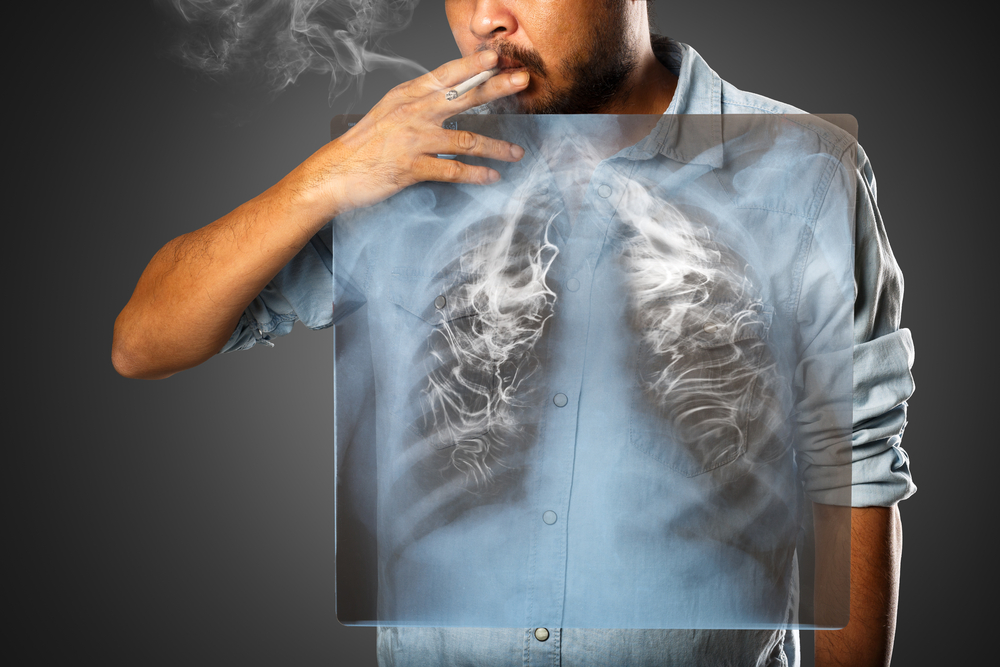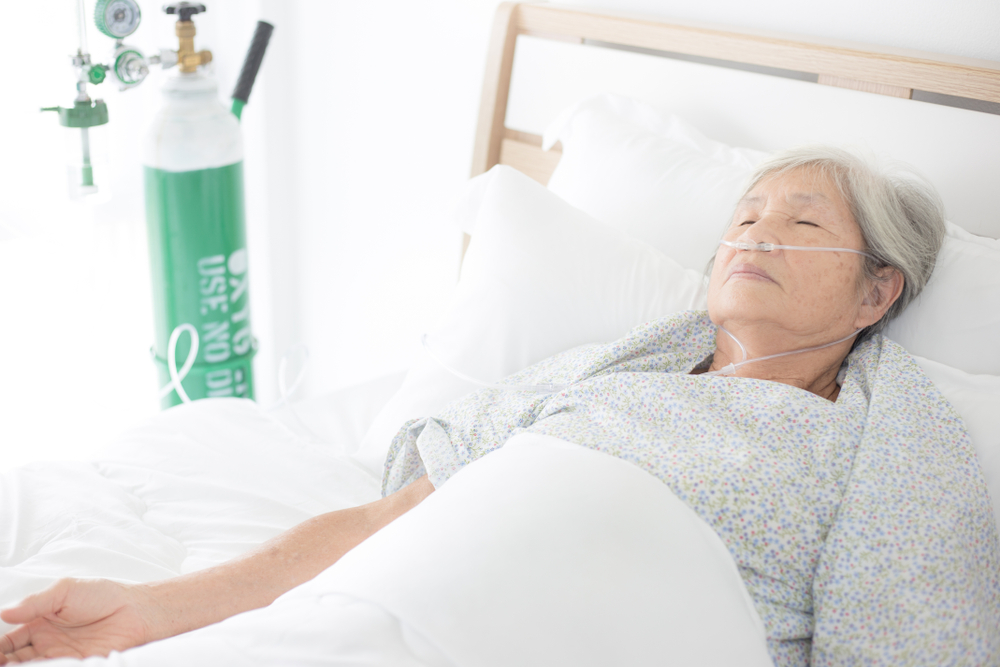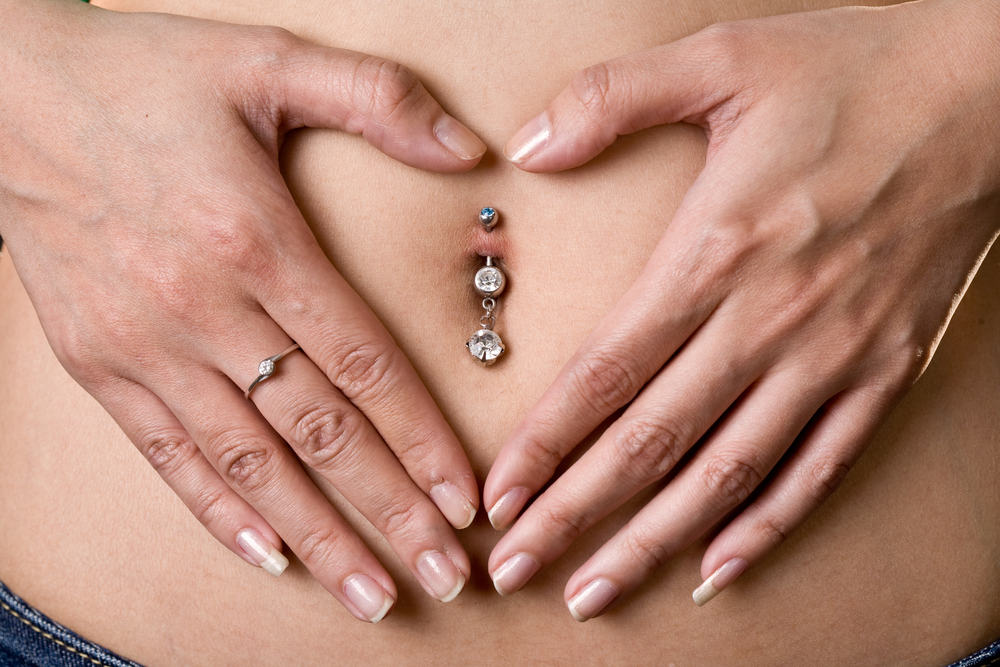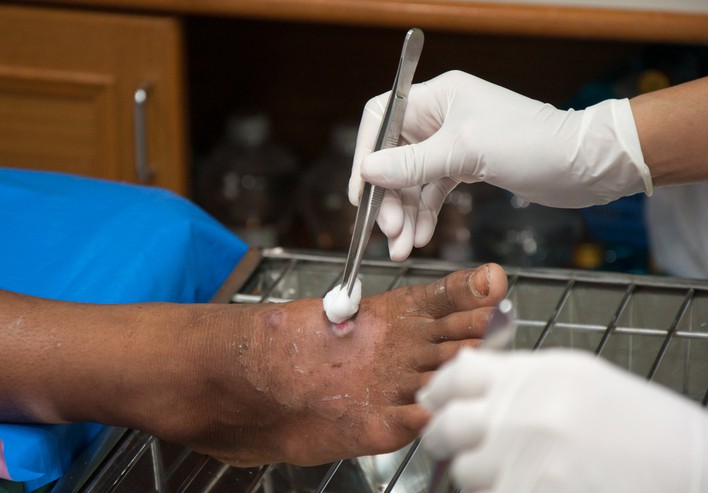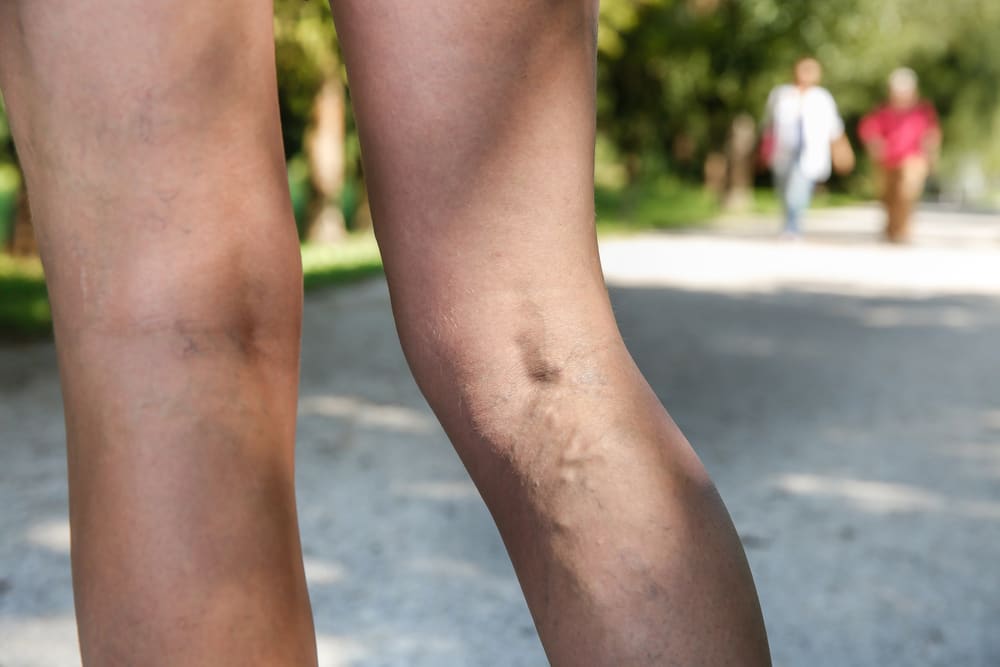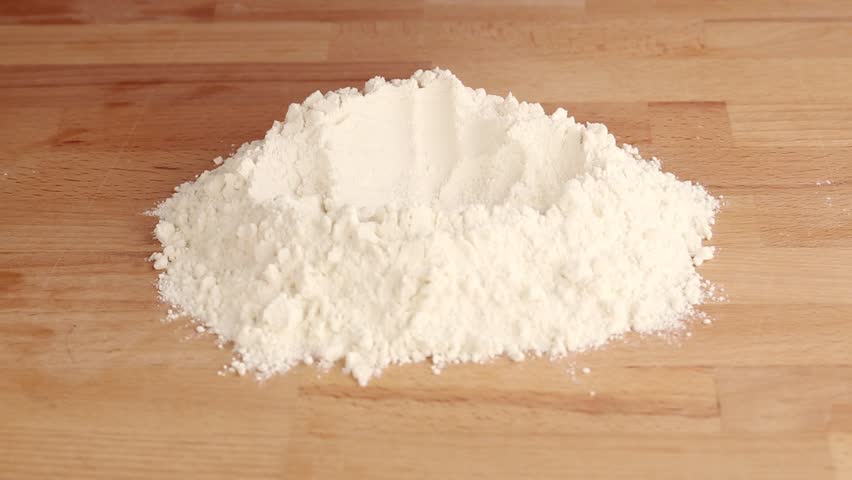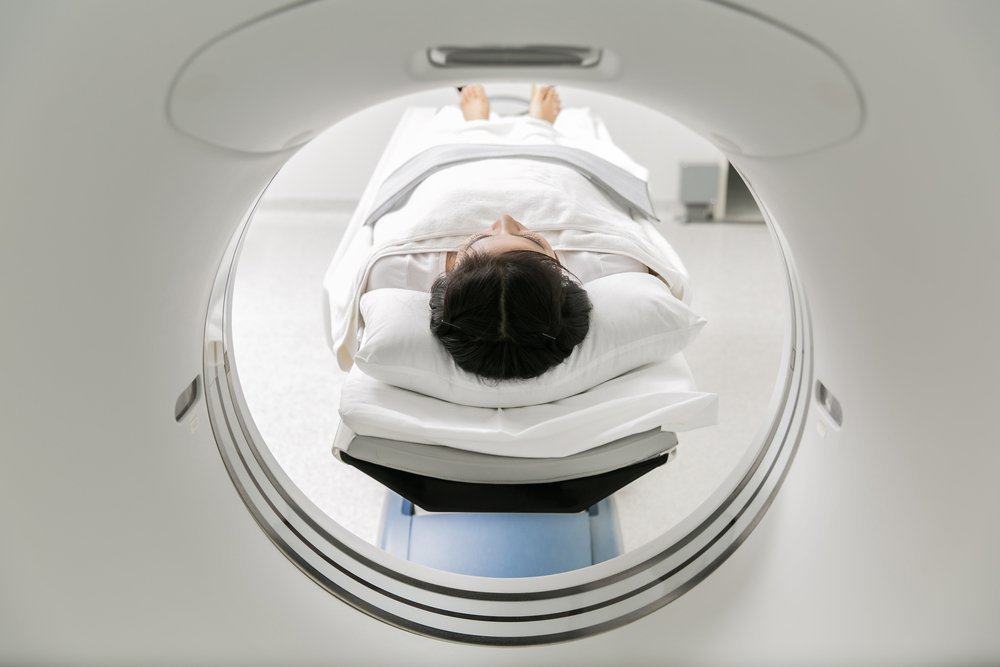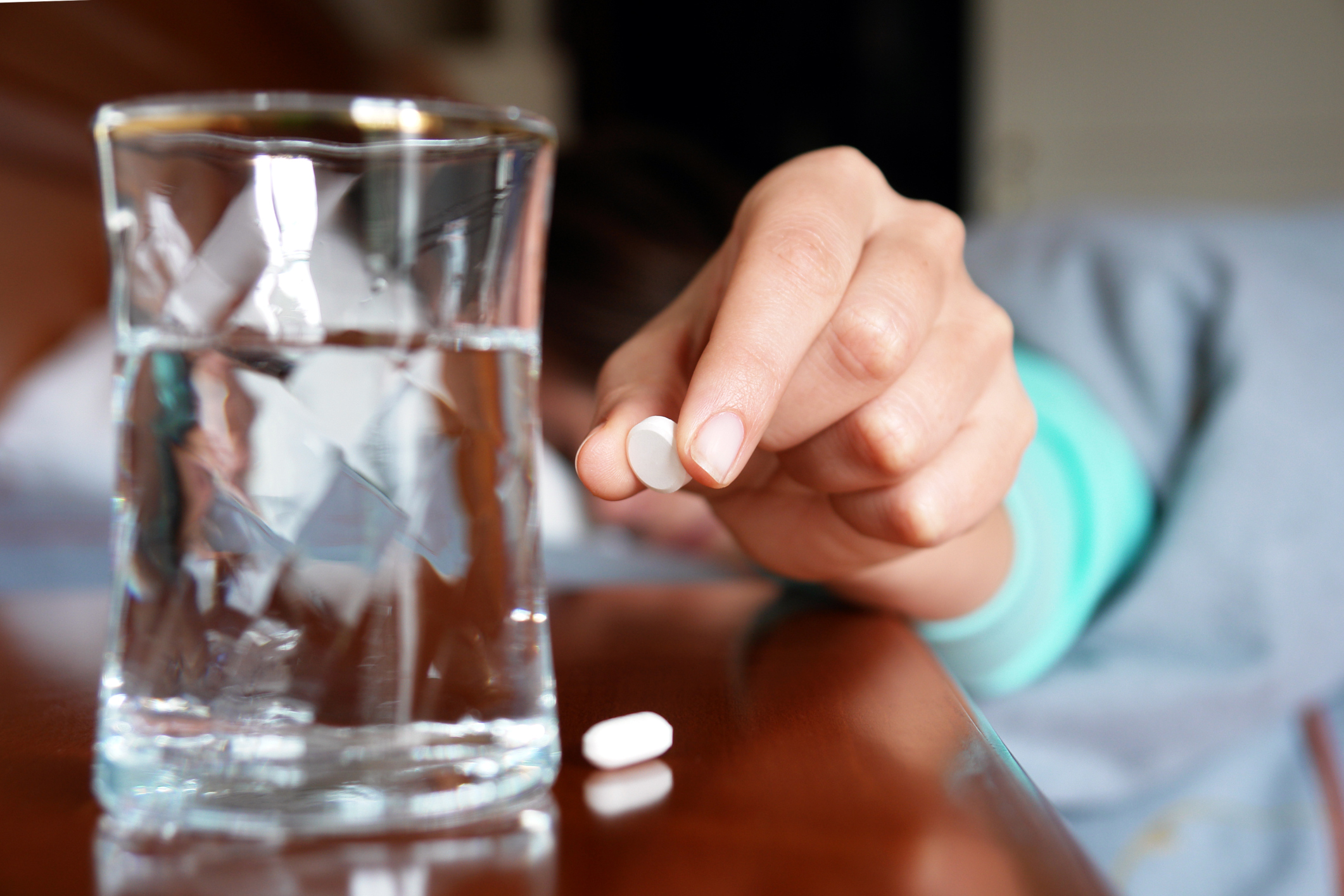Contents:
- Medical Video: Smoking and COPD | Nucleus Health
- What is COPD?
- What is the impact of smoking on people with COPD?
- How do cigarettes damage the lungs of people with COPD?
- How to prevent COPD?
- Can COPD be cured and how?
- Eliminate the effects of smoking on COPD in the following ways
- Quit smoking
- Avoid cigarette smoke
Medical Video: Smoking and COPD | Nucleus Health
Many believe that smoking is a bad habit. Even so, many people still cannot leave this habit even though they have certain health conditions, such as COPD. How dangerous is the impact of smoking on people with COPD?
What is COPD?
Chronic obstructive pulmonary disease (COPD) is a serious lung disease that will gradually make it difficult for people to breathe. The two most common diseases affecting people with COPD are emphysema and chronic bronchitis.
Both conditions are common in people with COPD, causing lung damage. As a result, the lungs lose their ability to carry out the task of taking and releasing air (breathing processes). Because of the interference, automatically, there will be less air that can enter the airways.
Some reasons that cause the lungs to lose their ability to channel air, namely:
- The airways and small air sacs (alveoli) in the lungs lose their ability to expand and shrink again.
- The wall between the alveoli is damaged.
- The walls of the airways become thick and inflamed (irritated and swollen).
- The airways produce more mucus than usual, which can clog and block air flow.
People who have COPD will usually not know that they suffer from the disease because the symptoms are not too visible. Even if symptoms appear, usually only in the form of mild symptoms, such as:
- Stubborn cough (often called "cough smoker")
- Shortness of breath, especially during physical activity
- Wheezing (whistling while breathing)
- Feeling tightness in the chest
Symptoms of COPD will usually be more visible if the condition worsens over time, such as:
- Difficulty breathing or talking
- Lips and / or nails are blue or gray (which indicates low levels of oxygen in the blood)
- Mental alertness problem
- Heart rate is very fast
- Swelling of the palms and ankles
- Weight loss
Not all of these symptoms appear you. How severe the symptoms appear will depend greatly on the level of damage to your lung. This condition cannot be cured. The only way to prevent this disease from getting worse is to avoid the trigger factors, such as cigarettes.
What is the impact of smoking on people with COPD?
The main cause of chronic obstructive pulmonary disease (COPD) is tobacco smoke, including those in those who smoke actively or passively. WHO estimates that in 2005, there were 5.4 million people who died from tobacco use. Tobacco-related deaths are expected to increase to 8.3 million deaths per year by 2030.
Smoking is accused of being responsible for the deaths of 9 out of 10 people related to COPD. This disease most often occurs in people over the age of 40 who have a history of smoking, both active smoking and former smokers. This shows that one of the effects of smoking actually contributes to health conditions such as COPD.
Although this disease is one of the effects of smoking, COPD also affects people who never smoke. But with a much smaller percentage. Only about one in six people with COPD sufferers who have never smoked. The impact of smoking from childhood and adolescence can also slow lung growth and development. This can increase the risk of getting COPD in adulthood.
How do cigarettes damage the lungs of people with COPD?
The air you breathe will move down through the windpipe and reach the bronchial canal. The bronchial ducts branch into smaller channels called bronchioles, each of which ends in many air sacs or bubbles known as the alveoli.
In these air sacs there are small blood vessels, namely capillary blood vessels. When you inhale, oxygen will move into the air sac and into the blood in the capillaries located in the air sac wall. Simultaneously, carbon dioxide is transferred from the blood vessels to the air sac. This process is called air exchange.
The body, or in this case the main role of the lungs, can carry out air exchange due to the nature of the elasticity of the alveoli. Air exchange can occur smoothly because of the expanding and deflating movements of the alveolus when we breathe.
Smokers who have lung damage will find it difficult to drain and expel air in the airways. One of them is caused by the impact of smoking they run. Some of the effects of smoking that make you catch less air, namely:
- Stiffness of the air sac (alveolus loses its elasticity)
- Wall degradation between airbags
- Thickening and inflammation of the walls of the airways
- Increased production of mucus in the airways, which causes mucus buildup and clogs the air inlet
Cigarette smoke contains harmful toxins that affect lung function. Toxins that are inhaled directly into the lungs for prolonged periods can cause high levels of abnormal lung irritation. This is what causes the occurrence of COPD. With continued long-term exposure to cigarette smoke, the lungs experience more damage, including lung inflammation, and damage to the lung filtration system.
How to prevent COPD?
The best way to prevent COPD is to never start smoking, and if you smoke, stop. Consult your doctor about programs and products that can help you stop. In addition, avoid passive cigarette smoke (secondhand smoke), namely smoke in the air produced by other people who smoke.
Can COPD be cured and how?
Unfortunately, this disease cannot be cured. If your lungs have been damaged, the damage will be permanent. The only effort you can do is to prevent the damage from getting worse by controlling through drugs, a healthy lifestyle, and avoiding the trigger factors.
Changes in lifestyle to be healthier are ways that can be done to prevent widespread lung damage. Quitting smoking is the main way to eliminate the effects of smoking on the body of COPD patients if you smoke. Avoiding cigarette smoke can also help you to prevent your condition from worsening due to COPD.
Some of the lifestyle changes you can make, including:
- COPD sufferers may have difficulty eating because of shortness of breath or fatigue, even though you need good nutrition to maintain immunity from the inside. For this, what you can do is eat a smaller portion but often. Take a break before eating. You can also take vitamins or supplements so that your nutritional needs are met
- Special activity program to help you strengthen muscles to breathe. Exercise is often avoided by people with COPD because of fears that it will cause problems with difficulty breathing. In fact, exercise also helps maintain your body's fitness. Follow a exercise guide for people with COPD or you can consult your doctor
In addition to lifestyle changes, the discipline of taking drugs that have been prescribed for people with COPD is also one of the keys to preventing the worsening of your COPD condition. Some treatments that you might use, such as:
- Bronchodilators to relax the muscles around the airways: this helps open the airway and makes breathing easier - most bronchodilators are used using a device called an inhaler
- Inhaled steroids to reduce airway swelling
- Oxygen therapy, which can help people who suffer from severe COPD and have low oxygen levels in their blood to breathe better.
Some surgeries can also be done in patients with COPD, if other treatments are not able to deal with symptoms that get worse. The following are some types of operations that can be carried out.
- Lung volume reduction surgery (LVRS): this surgery is useful for removing damaged parts of the lung so that healthy lung tissue can work better. LVRS is not a cure for COPD.
- Lung transplant: lung transplant surgery, either one part of the lungs or both from a healthy donor to replace damaged lungs in the body of a COPD patient. This option is usually the last choice.
Although there is no cure for COPD, lifestyle changes and treatments can help you breathe easier, stay active, and slow down the progression of the disease.
Eliminate the effects of smoking on COPD in the following ways
Quit smoking
Quitting smoking is the best thing you can do to protect your lungs and avoid the effects of smoking which makes your COPD symptoms worse. This can help you become more active and enjoy life. Tell your family and friends about your goal to quit smoking.
Avoid people and situations that make you want to smoke. Get busy with other things. Do it slowly day after day. Ask your doctor or nurse to help you stop smoking. There are many ways to stop smoking, including:
- Drugs
- Nicotine replacement therapy
- Stop smoking, support or counseling groups (face to face or online)
It's not easy, but everyone can stop smoking. New drugs and programs can be very helpful.
One of the tips to stop smoking that you can follow is write down a list of why you want to quit smoking. Then, set the date to stop. You may have to try to stop more than once - no problem. Keep trying even if it doesn't work at first. The more you try, the more likely you are to succeed.
Avoid cigarette smoke
Cigarette smoke will trigger more flare-up aka worsening symptoms of COPD and causing further damage to the lungs. So you have to take steps to avoid cigarette smoke. Some ways you can follow to prevent the effects of passive smoking include:
- Make your home and car a smoke-free zone. Tell others to follow these rules. Remove ashtrays from your home.
- Choose restaurants, bars and workplaces (if possible) that are smoke-free.
- Avoid public places that allow smoking.
Setting these rules can help you to:
- reduce the amount of cigarette smoke that you and your family breathe
- stop smoking and stay smoke free
If there are smokers in your workplace, some tips for dealing with it are:
- Ensure that there is an appropriate smoking area for smokers
- Ask a coworker who smokes to keep their jackets away from the work area, especially your work area.
- Use a fan and leave the window open, if possible.
- Use another way to avoid smokers outside the building.
When doing some of the above, it is possible that people will find you annoying. For this reason, explaining your condition of having COPD is a good step to create understanding between you and your colleagues. That way, you can try to avoid the effects of smoking that can worsen your condition.
Hello Health Group does not provide medical advice, diagnosis or treatment.

